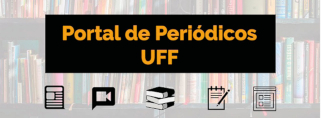Programa educativo na prevenção de doenças crônicas não transmissíveis
diabetes e hipertensão arterial
DOI:
https://doi.org/10.22409/resa2020.v13i3.a32912Resumo
Por meio da observação da importância da educação popular em saúde para a prevenção da saúde dos pacientes com doenças crônicas, principalmente Hipertensão Arterial Sistêmica e Diabetes Mellitus, ambas com alta prevalência na sociedade brasileira, o presente estudo busca avaliar os resultados de um Programa Educativo em Saúde, idealizado a partir da realidade de moradores diabéticos e/ou hipertensos da cidade de Maceió-AL, levando em consideração os aspectos: Conhecimento Geral sobre as doenças, Aspectos Psicológicos e Emocionais envolvidos e autogerenciamento no cuidado, utilizando instrumentos de avaliação que possibilitam avaliar programas educativos e possíveis efeitos do processo de ensino e aprendizagem. Trata-se de estudo clínico de amostra conveniente, com indivíduos de ambos os sexos, com idade entre 40 a 70 anos, divididos em dois grupos cujas intervenções foram realizadas por meio de oficinas temáticas e educação tradicional, com metodologias desenvolvidas especificamente para determinada população. Para avaliação foram aplicados questionários antes e após a realização das intervenções educativas em cada grupo. Optou-se pela utilização de teste não paramétrico Wilcoxon para observar mudanças (p≤0,05). Após a realização das intervenções educativas foi possível identificar que houve melhora do conhecimento geral sobre a diabetes e hipertensão, e autocuidado nos participantes diabéticos. Com relação à percepção emocional, os pacientes com hipertensão isolada demonstraram um pior escore ao final da intervenção. O estudo demonstrou que estratégias facilitadoras da educação popular em saúde de pacientes diabéticos e/ou hipertensos aumentam o conhecimento geral sobre a doença e melhoram o autogerenciamento do autocuidado da diabetes.
Downloads
Downloads
Publicado
Edição
Seção
Licença
Os autores que publicam nesta Revista concordam com os seguintes termos:
1. Autores mantém os direitos autorais e concedem à revista o direito da primeira publicação.
2. Autores têm autorização para assumir contratos adicionais separadamente, para distribuição não-exclusiva da versão do trabalho publicado nesta revista (ex.: publicar em repositório institucional ou como capítulo de livro), com reconhecimento de autoria e da publicação inicial nesta revista.






